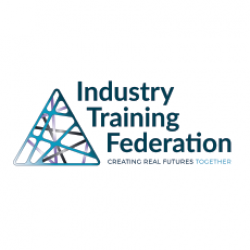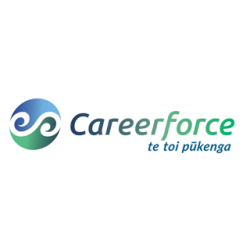
Hīnātore | Upskilling Māori and Pasifika workplace learners
Status
Completed: 11 December 2019
Project Details
A two-year project that examined the impact of workplace literacy and numeracy programmes on Māori and Pasifika employees, as well as the cultural values that underpin the programmes. This was a collaboration of Kia Ora Consulting Ltd, Skills Highway (Industry Training Federation) and Careerforce ITO.
Aims:
The project aimed to find out:
- why and how workplace literacy and numeracy programmes lead to successful outcomes for Māori and Pasifika employees in workplaces
- how employees are validated as Māori and Pasifika employees in their learning programmes and workplaces
- how new knowledge and skills transfer to the workplace and to employees’ whānau and community lives
- how learning in a workplace context engages and retains learners
- how learning is then applied in workplaces, community and life.
Methodology:
The project's qualitative methodology featured:
- a model called Te Ako Tiketike Māori as successful workplace learners
- an exploration of culturally-responsive approaches and how the concept of ‘ako’ is used in learning and teaching programmes
- reference to Ryan, Kitone and Fleming, (2017) on what contributes to successful outcomes for Pasifika learners in workplaces
- interviews, focus groups, digital technology (social media app) and observations
- triangulated data collected from three different sources: learners, tutors and employers.
The project's key research questions were:
- What factors and approaches lead to successful economic, social and wellbeing outcomes for Māori and Pasifika employees in workplace literacy and numeracy programmes?
- To what extent do these approaches incorporate culturally responsive pedagogies and the concept of ‘ako’ and how are these practised and articulated?
- How do Māori and Pasifika employees continue to develop their skills and transfer them to their working, whānau and community lives?
Intended outcomes:
The project intended to find out:
- how workplace learning programmes improve outcomes for Māori and Pasifika employees. Analysis of the data will help explain and validate what works for learners and the impact it has on their lives
- what classroom interaction and learning means for learners, as well as the value they perceive from it, in the context of their families, whānau and wider communities
- the cultural and pedagogical principles that can be used to inform practice
- what resources are needed to guide workplace literacy and numeracy programmes for Māori and Pasifika employees
- how programmes engage and retain employees
- employers who successfully recruit, retain and develop Māori and Pasifika staff as a business advantage and an essential way of future-proofing their workforce, in light of the demographic shifts occurring to Aotearoa New Zealand’s workforce.
Team

Cain Kerehoma
Kia Ora Consulting Ltd
Dr Nicky Murray
Programme Manager
Skills Highway (Industry Training Federation)
Anne Alkema
Research Manager
Skills Highway (Industry Training Federation)
Laloifi Ripley
Careerforce ITO.Status
Funding
$240,000.00 (excl GST)
Key Findings
Key Recommendations
This report describes the findings from the project in relation to the processes used in the programmes and outcomes for these employees in eight workplaces. It illustrates ako (teaching and learning processes); mahi (work), how workplaces support learning and employees’ changed ways of working during and after a programme; and how learning is taken into and contributes to whānau/aiga (family) lives.
- 1 December 2019
A summary of the project 'Hīnātore | Empowering Māori and Pacific workplace employees'. This project investigated the development of employees who undertook literacy and numeracy programmes in their workplaces, during work time.
- 1 December 2019